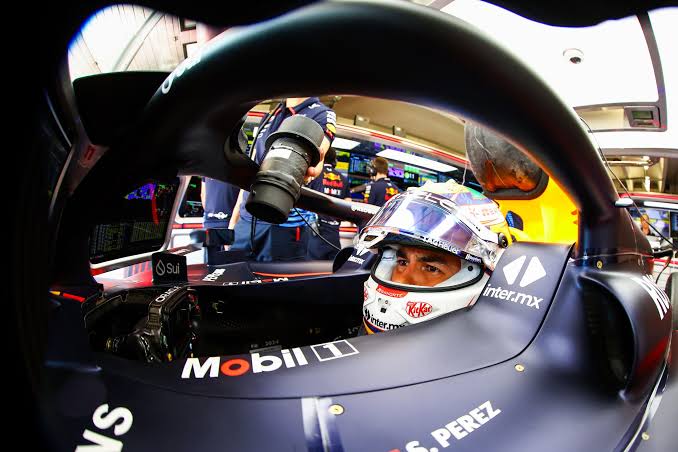
Revamped F1 Cars to Undergo Rigorous Testing for Enhanced Cockpit Cooling Systems Following Extreme Heat
In response to the scorching temperatures that have recently plagued Formula 1 circuits, teams are gearing up to introduce innovative upgrades to their cars’ cockpit cooling systems. The relentless heatwaves witnessed in several races have prompted F1 engineers to prioritize driver comfort and safety, paving the way for a series of comprehensive tests.
Formula 1, known for its cutting-edge technology and relentless pursuit of performance, is now facing a new challenge: climate resilience. With ambient temperatures soaring to unprecedented highs, drivers have endured uncomfortable conditions inside their cockpits, prompting concerns over dehydration and fatigue.
The upcoming tests are set to evaluate a range of solutions designed to enhance airflow and reduce cockpit temperatures during races. These innovations include advanced ventilation systems, improved insulation materials, and more efficient cooling mechanisms integrated into the cars’ design.
Teams across the grid have been collaborating with aerodynamicists and thermal engineers to develop bespoke solutions tailored to their respective cars. The goal is not only to mitigate heat-related issues but also to optimize aerodynamic performance, ensuring minimal disruption to the cars’ overall balance and speed.
One of the focal points of these developments is the integration of lightweight materials that can effectively dissipate heat without compromising the car’s weight distribution or structural integrity. Engineers are exploring novel ways to maximize airflow without increasing drag, leveraging computational fluid dynamics (CFD) simulations and wind tunnel testing to fine-tune their designs.
Moreover, the testing phase will also encompass rigorous simulations of various race scenarios, considering different track layouts and weather conditions. This holistic approach aims to provide teams with actionable insights into how their cooling systems perform under real-world racing conditions.
In addition to technological advancements, driver feedback will play a crucial role in refining these innovations. Pilots will provide critical insights into comfort levels, airflow dynamics, and overall cockpit environment during testing sessions, ensuring that the final solutions meet both technical and ergonomic standards.
Beyond the immediate benefits for drivers, these advancements underscore Formula 1’s commitment to sustainability and efficiency. By optimizing cockpit cooling systems, teams can potentially reduce the overall energy consumption of their cars, contributing to the sport’s broader environmental goals.
The forthcoming tests represent a significant milestone in Formula 1’s ongoing evolution, highlighting its capacity to adapt to emerging challenges while maintaining its position at the forefront of motorsport technology. As teams prepare to unveil their latest innovations, anticipation is building within the global racing community for the potential breakthroughs that could redefine the sport’s standards.
Fans and stakeholders alike are eager to witness how these advancements will translate into enhanced performance on the track, setting the stage for a thrilling new chapter in Formula 1’s storied history. With each team striving to gain a competitive edge through innovation and ingenuity, the upcoming tests promise to showcase the relentless spirit of technological advancement that defines the pinnacle of motorsport.
In conclusion, as Formula 1 gears up for the next phase of its technological revolution, the focus on enhancing cockpit cooling systems stands as a testament to its unwavering commitment to excellence and driver safety. With teams poised to unveil their latest innovations, the stage is set for a transformative period that could redefine the parameters of speed, efficiency, and endurance in the world of motorsport.
Leave a Reply